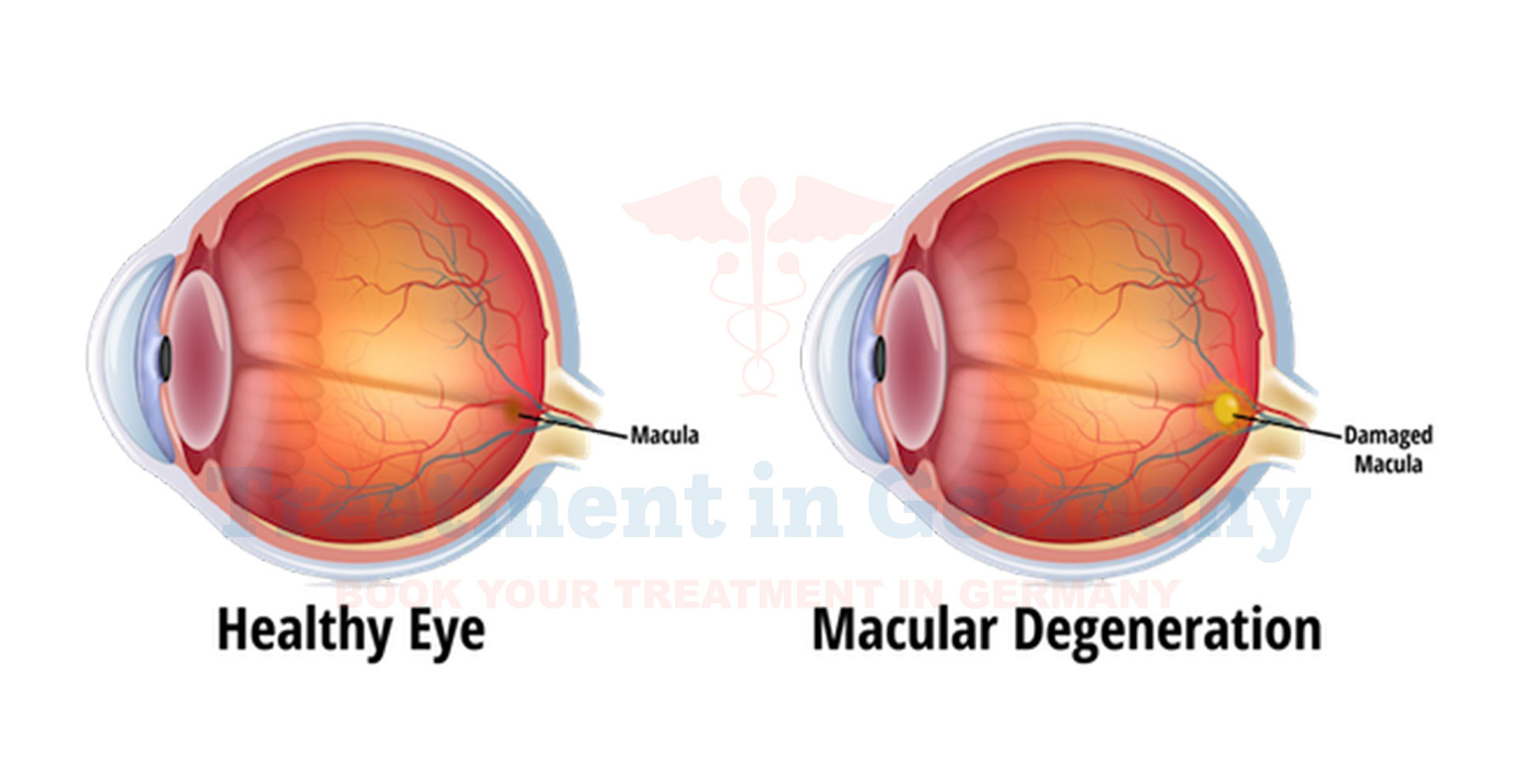What is Macular Degeneration?
Macular Degeneration, also known as Age-related Macular Degeneration (AMD), is a progressive eye condition that affects the central part of the retina called the macula.
The macula is responsible for sharp, central vision, which is crucial for activities such as reading, driving, and recognizing faces. AMD causes deterioration of this area over time, leading to blurred or distorted vision.
Side Effects of Macular Degeneration
The main symptoms of Macular Degeneration include:
- Blurred Vision: Straight lines may appear wavy or distorted.
- Difficulty Seeing in Low Light: Reduced ability to see in dimly lit environments.
- Loss of Central Vision: Gradual or sudden loss of the ability to see fine details clearly.
In advanced stages, Macular Degeneration can significantly impact daily activities, making it difficult to perform tasks that require detailed vision.
How is Macular Degeneration Diagnosed?
Diagnosis of Macular Degeneration typically involves:
- Eye Examination: A comprehensive eye exam, including visual acuity tests and dilation of the pupils to examine the retina.
- Amsler Grid Test: This test helps detect distortion in central vision by asking the patient to view a grid of straight lines.
- Optical Coherence Tomography (OCT): This imaging test provides detailed cross-sectional images of the retina, helping to detect abnormalities.
Early diagnosis is crucial for managing the progression of AMD and preserving vision.
Potential Treatment of Macular Degeneration
Treatment options for Macular Degeneration depend on the type and stage of the disease:
- Anti-VEGF Therapy: Injections of medications like ranibizumab or aflibercept into the eye can help reduce abnormal blood vessel growth and leakage, slowing down vision loss.
- Photodynamic Therapy: A combination of light-sensitive medication and laser therapy to target abnormal blood vessels.
- Laser Therapy: Used to destroy abnormal blood vessels in certain cases of AMD.
- Implantable Telescope: For advanced AMD, a miniature telescope implant can be placed in the eye to improve central vision.
👉 Contact us for further information and receive a complimentary consultation.


.webp)
 (1).webp)

.webp)
 (1).webp)


.webp)
 (1).webp)

.webp)
 (1).webp)
